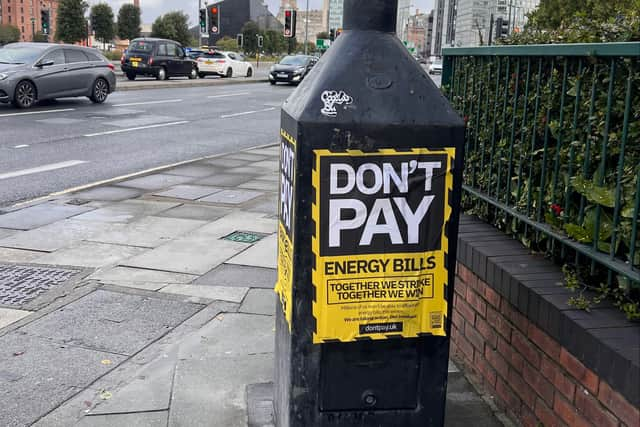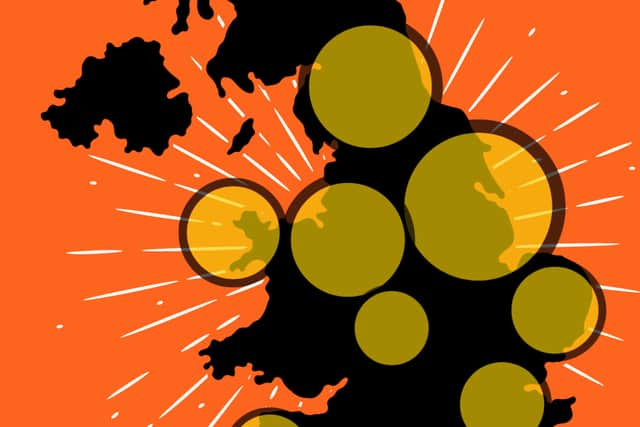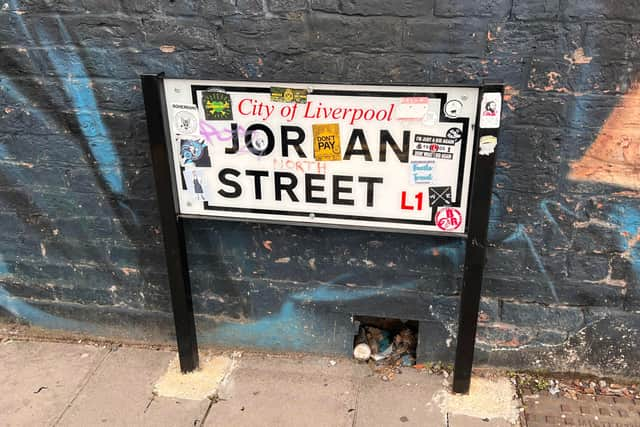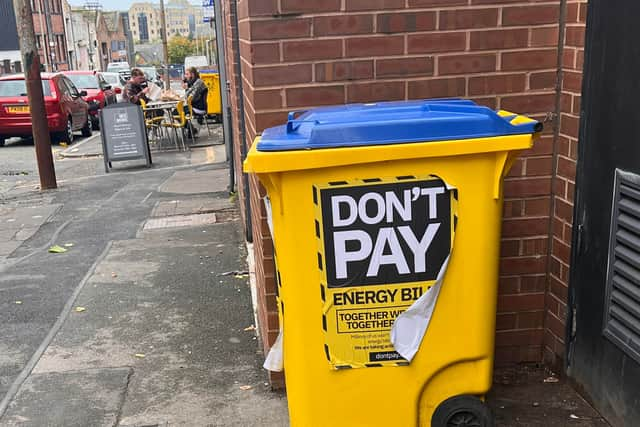Cost of living: Interest grows in Don’t Pay UK energy bill campaign across Merseyside
and live on Freeview channel 276
Interest in Don’t Pay UK’s campaign is growing across Merseyside, with a high number of internet searches recorded and campaign posters visible in Liverpool.
The Don’t Pay UK movement aims to get one million households to refuse payment of energy bills, in an attempt to convince energy companies to lower prices.
Advertisement
Hide AdAdvertisement
Hide AdAcross the city centre, a large amount of posters can be seen, on everything from street signs to litter bins, urging locals to join the pledge and fight against increased bills that come into force on October 1.


According to a study of Google search trends, Merseyside and the North West are among the most engaged with the national campaign.
Last month, More then 1.27 million people searched for information about Don’t Pay UK nationally.
The data, collected by Mortgage Brokers Haysto, shows Merseyside in the top three areas for searches, behind North Yorkshire and the North East.


Advertisement
Hide AdAdvertisement
Hide AdWhat is the Don’t Pay UK campaign?
The Don’t Pay UK campaign aims to get one million households to refuse payment of energy bills, in an attempt to convince energy giants to lower prices.
Despite the government capping energy bills at £2500 from October 1 - originally due to rise to £3,549 a year - the campaign continues.
On the campaign website, it states: “Millions of us won’t be able to afford our energy bills this winter. We can’t let that happen. Don’t Pay exists to bring us all together, build our leverage and fight back.


“We’re building our strength by mobilising for a non-payment strike. This means getting together everyone who wants to challenge this rigged system. It’s for everyone you know who can’t, or won’t pay. We’ll link you up with others in your local area and we’ll build this together - street by street, estate by estate and city by city.
Advertisement
Hide AdAdvertisement
Hide Ad“When one million people pledge to say they’ll stop paying their energy bills, we’ll call the strike. We’ll force the government, market regulator Ofgem, and energy companies to come to the table and negotiate with us collectively.”
Currently, around 191,000 have pledged to join the campaign - a long way from the one million pledges needed by Sunday.
Why is there more interest across Merseyside?
Merseyside households face the highest energy price cap, alongside North Wales, and also have one of the highest rates of poverty.
Prior to the announcement of the energy price cap, it was predicted that Liverpool would be disproportionately affected by the cost of living crisis.
Advertisement
Hide AdAdvertisement
Hide Ad

Risks of not paying energy bills
There is the risk of households having their electricity cut off if they don’t keep up with payments, however, Don’t Pay UK says it’ll be very difficult for energy suppliers to do so on a large scale, and energy supply disconnections for non-payments are extremely rare.
Mortgage advisory company also said there are concerns that if suppliers can’t get the money they’re owed, they may need to increase prices for everyone else to compensate and lead to widespread price increases. They also advise that missed payments could affect credit ratings.
Helen Fisher, Energy Champion at Liverpool Community advice told LiverpoolWorld people should not refuse to pay their bills. She said: “Do not cancel direct debits without arranging to pay using another method.
“As well as losing the £60 discount for paying by direct debit, you will also be deemed by the energy company as refusing to pay, and you will soon find yourself receiving letters from Debt Collectors or a County Court Judgement issued against you. Get in touch with your energy company and explain that you cannot afford the increased amount, and see if they will accept a lower monthly amount.”
Comment Guidelines
National World encourages reader discussion on our stories. User feedback, insights and back-and-forth exchanges add a rich layer of context to reporting. Please review our Community Guidelines before commenting.
